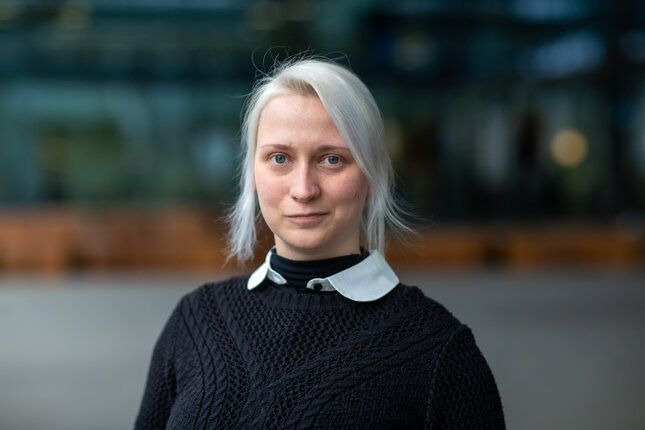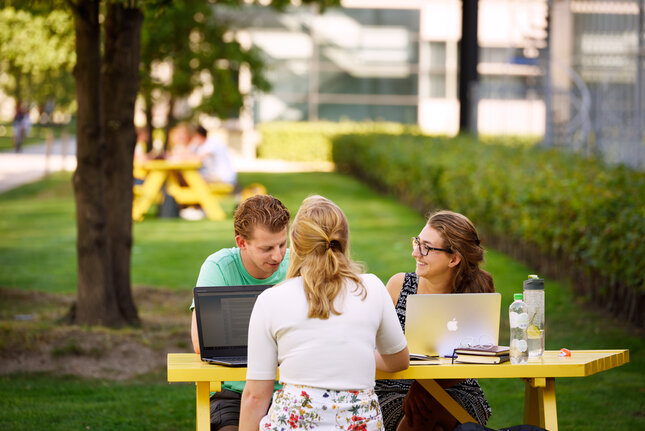Dropping Out of a Phd
<p>What happens to international graduate students who drop out of a PhD program (in the US) with a masters? Can I apply for a job? take up an OPT? etc. What are my chances in landing with a job.</p>
<p>I have accepted admission to a PhD program from a relatively top school but I am having second thoughts about my ability to finish a PhD. It’s weird; My decision seemed so obvious when I was applying.</p>
<p>If anyone has done it before please discuss how things are with you right now.</p>
<p>Hmm… That’s an interesting question! I would recommend you seek the advice of an international student counselor at your university.</p>
<p>Meanwhile, here are my thoughts. I’ll assume that you are an F-1 student. (There are a few extra complications for J-1 students.) </p>
<p>You can always drop out of your PhD program and apply for an H-1B work visa. USCIS doesn’t care whether or not you finish your degree as long as you don’t overstay your student visa.</p>
<p>However, if you want to use post-graduation OPT instead of applying for a work visa, you’d need to finish the degree stated on your I-20. So at some point, you’d officially have to change your degree program and ask your International Student Office for a new I-20. What I am not sure about is how this would affect your OPT. There’s a rule along the lines of, “Student need to be enrolled for at least one full academic year before qualifying for OPT.” I am not sure if changing your degree program would “reset” the OPT clock or not. </p>
<p>Two important differences for J-1 student: J-1 students cannot change their degree backward, e.g. from PhD to Masters (though of course you could still drop out of the PhD) and a 2-year home-stay rule might prevent a J-1 student from applying for a work visa in the US directly after grad school.</p>
<p>Thanks B@r!um. That makes a lot of sense. I will check on how the OPT status works. Also, would you be able to answer how often international students drop out of Phds for a job and if they have trouble finding a job when compared to a regular BS/MS international student? (I did my bachelor’s in the U.S). Thanks a lot for your help.</p>
I can’t give you a general answer. Drop-out rates vary dramatically even within a single discipline. My own PhD program has a completion rate of 90%; I also know of PhD programs in my field with 30% completion rates.</p>
<p>If you are wondering how many students drop out of your own PhD program and what sort of job prospects they have, older students in your program can probably tell you. (I wouldn’t necessarily ask professors at this point. Not the best way to make a good first impression.)</p>
<p>It is quite rare for international students to drop out relative to Americans. Infact they are less likely to drop out than American students because American students can drop out anytime and then find a job. International students on the other hand have no such luxury. You will have to transfer to another school (which might be difficult since schools might not want to accept someone undergoing a PhD) to have access to OPT. Then searching for an employer who would give you an H1B + Interviews at the same time While trying to complete a PhD.</p>
<p>Foreign students at Stanford certainly have no trouble getting sponsored for an H-1B, but I don’t know how typical that is. That’s why I didn’t want to make a general statement. </p>
<p>Would you mind sharing which experience your statement is based on?</p>
<p>@barium</p>
<p>What are you studying? </p>
<p>/hazards chem engineering</p>

Related topics
Popular states, search sat scores, search act scores, search gpa’s, subscribe to our newsletter.
Stay informed with the latest from the CC community, delivered to you, for free.
CONNECT WITH US
© 2023 College Confidential, LLC. All Rights Reserved.

Voices of Academia
Improving mental health in academia by giving you a voice., to quit or not to quit: pursuing a phd during the pandemic as an international scholar by athira unni .
It is a special kind of passion (or masochism) that makes one apply for a PhD during a pandemic. While it is well-known that doctoral studies can be isolating compared to other student experiences, it is especially isolating to undertake this journey today and study in a foreign country. In this blog post, I will reflect on my experiences as an international student from India pursuing her doctoral studies in Leeds during the COVID-19 pandemic and how this has impacted my mental health struggles.
When the pandemic was raging in 2020, I was back in Gurgaon, India. It was uncertain whether there would even be a vaccine during those times. The idea for my doctoral project, in fact, was a product of being cooped up inside the house. I scribbled down my initial notes, got some reading done and thought of returning to academia after a brief break. My rationale was that if I had to do a PhD, it would be better to do it sooner rather than later. Moreover, reports said that more and more people were going back to college due to uncertainty in the labour market. I thought it would be better to go for it rather than wait for the pandemic to end.
All the while, I was benefiting from therapy for anxiety and depression. My depressive episodes had begun during my Master’s degree in India and had continued since then. Being indoors without social interaction made me paranoid and dejected. I knew I would feel better if I were closer to family and friends in Kerala, but my husband and I were living quite far away from our hometown at the time. The pandemic had already heightened my sense of loneliness and I saw the PhD degree as a goal to strive towards, an escape from the never-ending boredom of being indoors with little to do. And so, I narrowed down my options and applied to universities in India and abroad, reaching out to potential supervisors and checking deadlines for universities.
When I got an acceptance from Leeds Beckett, I was overjoyed. My supervisors were experts in the topic I wanted to work on and I felt lucky to have the opportunity to pursue it. The next step was getting through the paperwork for immigration. It was nerve-wracking and I was anxious something might go wrong at each step. My anxiety came through like never before and I remember getting extra print-outs for every single document while going to get my visa. My husband, who was accompanying me to England, shook his head when he saw the bundle of papers I was carrying to the visa appointment. Travel restrictions due to the pandemic meant we needed PCR tests to prove we did not have the virus, Passenger Locator Forms and proof of where we would be staying in Leeds, not to mention the masks, aprons and face shields we had to wear on the long flight and the mandatory quarantine that came after. Moving countries during the pandemic was truly like moving planets.
Although I had been to England before (and thoroughly loved it), this time it was different. The bleak and grey weather was more depressing with fewer people out and about. There were places boarded up, shut indefinitely or gone out of business. Our house hunting in Leeds was brief and my research work had begun two months before travelling to Leeds. I met my supervisors on MS Teams and it was clear that all this was new to them as well. My orientation was also online, which meant I knew my cohort who joined along with me only as names next to boxes, sometimes with faces and sometimes not. New phrases such as ‘Zoom fatigue’ and ‘new normal’ were bounced around. When I finally visited the University, it felt like going to a ghost town with no students buzzing around the cafes or open spaces. It was repeatedly hinted that this was not how things were supposed to be.
Homesickness and struggling to find my feet
In the first two months of being in England, I was constantly checking for news from back home. In the summer of 2021, the death rates in India were high and I was far away, anxious for my family and friends. The only way I could get any work done was to remind myself that I was in England for a reason. I saw on the news the confusing and sometimes contradictory information surrounding the virus, the possibilities of more deadly variants, controversies surrounding vaccines and the differences in approaches taken by different governments. I was conscious of the fact that my husband’s and my health was something we had to be careful about ourselves with our family and friends being far away. We knew nobody in the city. It was an anxious time with no end in sight and a consistent stream of bad news reported from all over the world.
My struggle with learning the ropes in academia was happening in tandem. The thing about pursuing a PhD is that it is a journey of creating knowledge rather than acquiring it or applying it. This means being acutely aware of the existing knowledge in the field and striving to add to it or fill the gaps that might be there in existing research. Learning how to do this involves being up to date about new research and knowing your research interests back to front. I was learning all this in a foreign setting with only my husband for emotional support. Perhaps, in more normal times, I would have had a peer group going through the same journey as I was. It might have been less isolating to do this. Even so, there were positives in my first year. My supervisors were extremely supportive and I passed my Confirmation of Registration and Annual Progression. I tried out different ways to calm my anxiety and to not get panic attacks, including scented candles, paper planners, digital planners, productivity apps, Studygram accounts by other PhD researchers, #AcademicTwitter and books about grad school. It is surprising how resilient PhD students have found ways around being isolated. Personally, social media has helped me to connect with those undertaking similar journeys, sharing tips and encouragement. I feel more connected to some of the academics I follow online than those who I know from my cohort.
My biggest struggle came during the October-November months of 2021. I was approaching the end of drafting Chapter 1 and was having trouble tying up a lot of loose ends. I was at my wit’s end, so to speak. I was also going through the struggle of whether or not to stop taking medication. My prescription from India was ending in October which meant I was supposed to wean off medicines by then. While trying to do this, I developed heightened levels of anxiety. I started losing sleep, experiencing anger outbursts and very low levels of motivation. I did not have the energy to take care of myself and I felt the familiar sense of hopelessness returning. That was the first time, and hopefully the only time, I considered dropping out of the PhD program and returning to India. I was so sure that I would not make it. The extreme sense of hopelessness made me announce my decision to my husband and my supervisors about ending my studies and going home to India. I was missing my family and friends, my support system, and the familiar sense of being comforted and supported. I was thoroughly burnt out and I was ready to give up.
Putting my mental health first
My husband’s logical response was to wait for a week or so before reconsidering my hasty decision. He insisted that I would feel differently once I had calmed down and felt like myself again. My supervisors reminded me that my work was good, and since they knew about my mental health struggles from before, they were sympathetic about how I felt. They also urged me to take some time off work, knowing that I had thrown myself into my dissertation and some extra projects, working even during the summer. Their words and encouragement made me realize that I was putting too much pressure on myself.
After a week, however, I was still feeling unmotivated, hitting a wall in my research and could not even read a page without giving up. My GP recommended getting back on the minimal dose of medication and restarting therapy. I followed their advice. It took some time, but I slowly felt like I was breathing normally again. I felt like I was coming out of a black pit, a place of sorrow and dejection that I was sure I would not come out of, even though there were people trying to pull me out. It was a place where I could not get any work done or find any interest in anything I enjoyed previously. It had been weeks since I had written any poetry and that itself was telling. I had stopped going out and had developed social anxiety. Extreme fatigue meant that even getting out of bed became a daily struggle. But slowly, I felt calmer.
Following my supervisors’ strict advice, I only read for pleasure during the two weeks I took off for Christmas. My husband suggested getting a jigsaw puzzle over the holidays and we enjoyed putting it together. We went on a short trip to visit the scenic Malham Cove on New Years’ Day. It was a month and half before I began feeling light and happy again. After taking a break from work, I slowly got back into a regular schedule in mid-January. Looking back, I am surprised I even considered giving up. There is, of course, no shame in leaving a PhD program, but I was putting myself under a lot of pressure. I know now that things do get better with help and that this journey is more about persistence and pacing myself. My biggest lesson was that I had underestimated my rate of recovery from my mental health struggles, assuming that there would be no recurring episodes. I learnt that although I thought I knew my early warning signs and had prepared for my symptoms, the symptoms could change and even be more intense. It is all the more difficult when you are far away from everything familiar to you.
I have learnt that adjusting to a new culture is more fun when you are not suffering from poor mental health and there isn’t a raging pandemic. I am sure that I would have had better experiences had I been doing my studies here in more normal times. But I do not regret moving here. It has been a learning curve.
I still have a few more years to go to complete my research. I am aware that there might come a time in the future when I’ll consider giving up again. But hopefully I will know from experience that those stressful phases are more challenging for me due to my personal struggles with anxiety, and that I can find ways to manage my thoughts and emotions. That said, I hope that I never have to go through it again. Perhaps, the COVID-19 pandemic will end this year or the next, and there would be some sense of normalcy in my PhD experience. Here’s to hoping for an in-person defence of my dissertation—as scary as that sounds at this point! Whatever happens, I hope to do well while not compromising my health. Whatever happens, I know I can succeed.

Share this:

- Already have a WordPress.com account? Log in now.
- Subscribe Subscribed
- Copy shortlink
- Report this content
- View post in Reader
- Manage subscriptions
- Collapse this bar
- Search News and Events
- News overview
- Media relations
Why some PhD students may decide to leave academia
TU/e researcher Andrea Kis discusses her research into the correlation between bad workplace experiences and the decisions PhD researchers make to abandon their PhD research.

The number of young, talented doctoral candidates who decide to leave academia , often before graduating as a PhD, is worrying. The fact that approximately 60 percent of PhD’s worldwide consider quitting their research, or at least do not graduate within 6 years of study, is a risk for the future of knowledge and research institutions such as universities. In her thesis, psychologist Andrea Kis is researching what factors significantly influence these career decisions in order to better understand why some young researchers leave or stay.
In her research, Kis found a correlation between experiencing problems in supervision or other socially unsafe situations as a PhD, and the decision to leave academia. Her recommendations of improving supervisor training and skills are very practical. However, the stress stemming from the current pervasive publish-or-perish culture, in all levels of academia, may not be something that any one institution is able change on its own. She published the first part of her research recently in PLOS ONE.

Safe working environment
There is a lot of focus on social safety in academia these days, and universities are slowly coming to realize that the current working climate in academia is perhaps not as perfect as everyone wanted to believe for a long time. “Working in a (socially) unsafe working environment is very impactful, in many ways. For this part of my research, I wanted to know if the safety of your working environment was a deciding, significant factor in the decision of PhD students to leave academia,” says Andrea Kis , psychologist and part of the Technology, Innovation & Society group at the department of Industrial Engineering and Innovation Sciences.
“We had around 1600 PhD students at TU/e according to the website in 2020. Almost 400 of them sent back valid survey results. That is an enormous commitment regarding the subject at hand and makes for a good, and higher than typical, response rate.
“When processing the results we had to account for the fact that we are a Dutch STEM university. STEM researchers constitute an understudied population that might differ substantially from non-STEM populations, as natural and laboratory sciences appear to have (much) lower attrition rates than, for example, the social sciences and humanities.
Commitment and response
“PhD candidates in the Netherlands are generally employees and earn a salary, which means that ‘funding’ is much less of a concern for them. Studies show that PhD candidates who have more stable financial resources are more likely to complete their education. We found that most, around 90 percent, of our respondents were very happy in their work, and about their supervision.
“We found that only 21 percent of our respondents considered leaving academia, which is significantly less than the worldwide number of 60 percent or the 34 percent attrition rates in the literature. However, the group that did report irregularities, ranging from bad or absent supervision and a high workload to unethical research practices, also turned out to have an above-average chance of leaving academia.”
The correlation between bad experiences at work and the decision to leave may not come across as very surprising, it is however extra poignant when realizing that this group not only ‘changes jobs’, but leaves their scientific career behind to go do something else entirely. “Students who decide to do a PhD are people who dream about becoming a scientist, or at least enjoy doing research for a living. That is their ambition, although they do not necessarily want to stay on in academia after graduation. It is crushing to see these driven, talented people leave behind the PhD research they set out to do, because of bad workplace experiences,” adds Kis.
“Being a PhD can be a lonely existence, especially when you leave your family and friends behind and move to a different city or country to follow your dream. When you feel completely on your own, it can be much harder to deal with a bad vibe in the team, a workplace incident, or a supervisor with little time for you.”
Working to create a socialy safe environment
Even though the percentage of PhD candidates considering leaving academia at Eindhoven University of Technology (TU/e) is well below average (21 percent at TU/e vs. a reported average of 34 percent in Europe and 60 percent worldwide), there is still a drive to understand and prevent the reasons why young and talented researchers leave their chosen career path behind.
"TU/e’s HR department and the Graduate School are jointly responsible for the education and working environments of the PhD’s. They value the insights and recommendations offered by Andrea Kis," explains Ineke van der Vegt, TU/e HR policy advisor. "Her policy related reflections have been carefully considered by a committee and have influenced the position paper that is being written, as we speak, for Paul Koenraad’s second term as dean for the Graduate School. Although the contents are not final yet, it is safe to assume that there will be a lot of focus on social safety."
"But, also in the present day, there are a lot of measures in place to ensure that PhD students can thrive during their research. The PhD supervisor training course has been around for years and has been recently updated; it is freely available for every new supervisor. There is also focus on developing healthy leadership skills for all researchers at assistant professor level and beyond," says van der Vegt. "Additionally, every PhD is required to have a second supervisor (co-promotor), to limit how much any PhD student is dependent on just the first supervisor. And, last but certainly not least, there is the PhD counselor, who is there for every PhD researcher who wants to discuss their situation in a confidential setting with someone who can help and offer advice."

Researching your own
“It is very interesting to be a psychologist at a STEM university,” Kis adds enthusiastically. “For me, in my experience in social sciences and humanities studies, it is very commonplace to research your own environment and population. Every psychology department anywhere will research the students of its own institution, the employees, etcetera. I found that researching our own students and employees like we did is in many ways a first for TU/e. Nevertheless, the results have been welcomed to help improve our institution.
“And to that end I’d love to see more psychologists join me in researching our TU/e community. It will help to normalize this type of research at our university too. And the results can only help policymakers to understand their own institution better and help them to make the right decisions. It also explains why I have four different supervisors, because there is no single professor who covers the same domain that I’m studying.”

Using the results for the better
Nevertheless, TU/e is not alone in having to address the situation. When asked about the root causes, Kis clarifies: “It is my belief that the publish-or-perish culture in science is at the root of many of the workplace issues we see in academia today, such as normalizing overtime work. It pushes people to unconsciously have unhealthy work-life balances, to favor PhD students who publish more, to take on more work and more students, and to put your name on as many papers as you can. This can result in workplace environments no one wants.”
“Added to that, we do not yet have a mandatory training or course in place to train PhD supervisors in their new role. They may be the best researchers in their particular field, but effectively being the manager of a team of brand new scientists and coaching them requires a different set of skills. We should allow people to acquire those too, before we give them PhD students to supervise.”
“What my research can do is to grow awareness of the root causes and the effects. That way we can help people become better in their role as a supervisor, instead of blaming them for things that go wrong and leaving them to sort it out themselves. It is very, very rare that people create a bad working environment on purpose. Educating and supporting supervisors is a far more constructive way forward, according to all literature I found on the subject,” adds Kis.
“I really am an optimistic person and I believe we can help to change academia become a better place to work in. Better for excellent science, and kinder to the people who work there. I hope my research helps to bring that about,” concludes Kis.
More information
The article ‘ Leaving academia: PhD attrition and unhealthy research environments’ was published in PLOS ONE on October 5, 2022. Andrea Kis is continuing her PhD research under supervision of Elena M. Tur, Daniël Lakens, Krist Vaesen and Wybo Houkes.
HR and the Graduate School are gathering everything a PhD may need in one place, a portal. This is a work-in-progress, but already offers a shortcut to help, or someone to talk to. More info:
PhD Programs (tue.nl) – Graduate School - PhDs PROOF Training Program (tue.nl) – courses for PhD’s Scientific Staff Management Training Program (tue.nl) – o.a. academic leadership courses and the recently updated Supervising PhD’s course. PhD-EngD Counselor (tue.nl) – link to the PhD-EngD counselor
More on our strategy

Latest news
![[Translate to English:] [Translate to English:]](https://assets.w3.tue.nl/w/fileadmin/_processed_/9/f/csm_1%20Banner%20image%20TUe_PhD_Lab_Maritza_0293_ca003fea04.jpg)
Keep following us
Newsletter research.
Sign up for our bimonthly newsletter that brings you the latest in groundbreaking research from TU/e.
TU/e podcasts
The Dutch podcast Sound of Science discusses the latest scientific discoveries and the role of technology in society.
Be part of our community and stay up to date on everything that happens at TU/e by following us on LinkedIn.
Be the first to know the latest TU/e news via our Twitter channel.
Instagram - Research
Follow our latest research news via our research channel on Instagram.
On our YouTube channel you find the latest videos and animations about research, education and working at TU/e.
Kshitij Tiwari Ph.D.

Knowing when to quit PhD: Signs to look for and what to do next
Not many know of the harsh realities of the PhD program when they first start out and many struggle to be fully convinced that PhD is indeed the right career choice for them.
So, somewhere along the journey they start feeling stuck with no real progress being made and start questioning whether or not to continue . It is at this time, they need to make the tough call and often they lack the know how to be able to decide how to proceed thereon.
In this article, we will look into the signs that indicate it’s time to quit your PhD program, what to do after quitting, and alternative career paths to consider. We’ll also discuss managing finances and prioritizing mental health during this difficult time, as well as the importance of a healthy relationship with your PhD supervisor.
Finally, we’ll explore how a change in personal goals can affect your decision to leave the program and provide resources for those considering leaving their PhD program. Contrary to the other blogs that touch base on this topic, we will also look into how you can resume your PhD journey after a brief hiatus if you decide so instead of quitting.
Table of Contents
Signs it’s time to quit PhD
Making the decision to quit PhD
Next steps after quitting phd, alternative career routes after quitting phd, resume your phd journey, key takeaways, signs it's time to quit phd.
There are some tell tale signs that you can look out for to know if it’s time to quit your PhD.
Lack of Passion
Your passion for your research should be what drives you to continue your PhD. If you find yourself lacking excitement or interest in your work, it may be time to re-evaluate your goals and consider quitting.
Emotional and mental health issues
The stress of a PhD program can take a toll on your mental health. If you find yourself constantly anxious, overwhelmed, or depressed, it may be a sign that the program is not worth sacrificing your health.
Financial Hardship
PhD programs can be expensive and do not always offer enough funding or job opportunities to support your lifestyle. If you are struggling financially and cannot see a way out, it may be time to consider other options.
Lack of Support
A strong support system is crucial during a PhD program. If you feel isolated or unsupported by your colleagues or mentor, it can make the program even more challenging.
If you recognize any of these signs, it may be time to take a step back and evaluate your options. It’s important to remember that quitting your PhD program does not mean you have failed. Here are some steps to take next:
Speak with a trusted mentor or advisor to discuss your options.
Consider taking some time off to re-evaluate your goals and explore other interests.
Look into alternative career paths or programs that align with your interests and values.
Connect with a therapist or mental health professional for support during this transition.
Poor relationship with supervisor or lab members
If you’re experiencing conflicts with your supervisor or lab members, it can create a toxic work environment that affects your ability to perform. This can be especially challenging in a PhD program that is often heavily reliant on the relationship with your supervisor. If attempts to resolve conflicts have been unsuccessful, it may be time to consider moving on to a different program or workplace. Remember that your well-being should be a priority and it’s okay to make changes that support that.
Change in personal goals or circumstances
As we grow and change, our goals and circumstances can shift. If you find yourself no longer interested in pursuing a career in academia or if personal circumstances make continuing the program difficult, it’s important to consider whether the PhD is still the best path for you. Keep in mind that it’s never too late to make a change and pursue a different career path that aligns better with your current goals and needs. Remember to seek support and guidance from trusted advisors and professionals as you make these decisions.
The decision to quit your PhD is a difficult one, but it’s important to be honest with yourself about your needs and goals. Remember that quitting does not mean failure, and it’s never too late to make a change. Here are some steps to help you make this decision
Weighing the pros and cons
When making the decision to quit your PhD program, it’s important to weigh the pros and cons. Some pros of continuing may include a strong passion for your research, a supportive advisor, and opportunities for career advancement. However, some cons may include financial strain, mental and emotional exhaustion, and a lack of interest in your work.

Reflecting on your goals and values
Reflect on your goals and values and how they align with your current situation. Are you still passionate about your research? Is the PhD program aligning with your personal values and goals? Reflecting on these questions can help provide clarity when making the decision to continue or quit the program.
Seeking advice and support
Speak with trusted mentors, advisors, and professionals to discuss your options and gather information. It’s important to seek advice and support from people who understand the demands of a PhD program and can help you make an informed decision.
Trusting your intuition
Ultimately, the decision to quit your PhD should come from a place of intuition and self-awareness. Trust your instincts and listen to your body and mind. If you feel that continuing the program will have a negative impact on your well-being and happiness, it may be time to consider other options.
Remember that quitting your PhD program does not mean you have failed. It takes courage to acknowledge when something is not working and make a change. Trust yourself and do what is best for you and your future.
If you have decided to quit your PhD program, it’s important to have a plan for what comes next. Here are some steps to consider:
Take time for self-care
Leaving a PhD program can be a major life change that can have an emotional impact. It’s important to take time to reflect, process your feelings, and engage in self-care activities that help you feel grounded and supported.
Re-evaluate your career goals
Reflect on your interests and career goals and explore alternative career paths that align with your passions and values. Consider taking courses or workshops to develop new skills and broaden your options.
Network and build new connections
Connect with professionals in your field of interest and attend industry events to expand your network and gain insight into new career opportunities. Building new connections can help you find new opportunities and grow your professional circle.
Seek support and guidance
It’s important to connect with a mentor, advisor, or therapist who can offer support and guidance as you navigate this transition. They can help you overcome any obstacles or self-doubt you may have and provide valuable insights and resources.
Consider further education or training
If you are interested in pursuing a different academic path, consider further education or training in a new field. This can open up new opportunities and help you gain new skills and knowledge.
Embrace the change and stay positive
Leaving a PhD program can be challenging, but it’s important to embrace the change and stay positive. Remember that this decision is an opportunity for growth and new experiences. Focus on the positives of your decision and stay open to new opportunities that come your way. With time and persistence, you can forge a new path that aligns with your passions and goals.
If you decide to leave your PhD program, there are many alternative career routes to consider. Here are a few options to explore:
Consider exploring career opportunities in industry that relate to your research interests. Industry jobs can offer more stability and a faster career trajectory than academia.
If you enjoy teaching, consider pursuing a career as a high school or community college teacher. You can also consider teaching positions in non-academic settings, such as museums or community centers.
Entrepreneurship
Starting your own business or consulting firm can be a rewarding career path that allows you to apply your research skills in new ways. Be prepared to invest time and energy into building your business.
Non-profit work
Non-profit organizations offer a variety of career opportunities that align with your values and interests. Consider working for a non-profit in a role that utilizes your research skills or knowledge.
Government work
Working for the government can provide stable employment and opportunities to make a difference in your field of interest. Consider working in a government agency related to your research area or in science policy.
Freelancing
Freelancing or consulting can offer flexibility and the opportunity to work on a range of projects related to your research or interests. Be prepared for the challenges of self-employment and building a client base.
Remember that there are many alternative career paths to consider after leaving your PhD program. Take time to explore your interests and goals, and seek advice and support from trusted professionals as you navigate this transition.
Consider your options carefully and make a decision that aligns with your values and goals. Remember that it’s okay to change your mind and pursue a different path. Take time for self-care, re-evaluate your career goals, network and build connections, seek support and guidance, consider further education, and stay positive.
As opposed to quitting, if you give it a second thought and decide to resume with your PhD, here are some steps to help you through it and your approach from the past. Don’t worry if you’re feeling unsure; this is a normal phase for many.
Reconnect with your advisor and lab members
It’s important to reconnect with your advisor and lab members after a hiatus. Schedule a meeting with your advisor to discuss your plans moving forward and any necessary steps to re-integrate into the program.
Review and update your research plan
Take time to review and update your research plan to ensure that it aligns with your current goals and interests. Consider any changes that may have occurred during your hiatus and discuss any necessary adjustments with your advisor.
Re-establish your routine
Returning to a PhD program may require adjusting your routine to ensure that you have enough time and energy to dedicate to your research and coursework. Make a schedule that works for you and stick to it. Create a plan for managing your time, including scheduling regular breaks and self-care activities.
Connect with your peers
Connecting with your peers can help you stay motivated and engaged in your program. Attend department events, join a study group, or participate in student clubs to meet new people and build relationships.
Seek additional support and resources
If you are struggling to get back into the swing of things, consider seeking additional support and resources. This may include working with a tutor, attending office hours, or accessing mental health services.
Keep your long-term goals in mind
Remember your long-term goals and why you started your PhD in the first place. Keeping your goals in mind can help you stay motivated and focused as you resume your PhD journey. Celebrate your successes and milestones along the way and don’t be afraid to ask for help when needed.
Whether you decide to quit your PhD program or continue on, the most important thing is to be true to yourself and your values. Take the time to reflect and seek advice and support from trusted mentors, advisors, and professionals. Remember that there are always options and opportunities to pursue your passions and goals. Whatever you choose – to quit or to resume your PhD after a brief hiatus , trust yourself and take pride in the journey ahead.
Related resources
- I consent to the having this website store my submitted information as per the privacy policy so they can respond to my inquiry.
View the latest institution tables
View the latest country/territory tables
View topics
Three questions to ask yourself before quitting your PhD
It’s normal for PhD candidates to consider abandoning their studies. Here’s how to take emotions out of the decision.
Gemma Conroy

Credit: Jacobs Stock Photography/Getty
28 July 2020

Jacobs Stock Photography/Getty
Amid lab shutdowns and cancelled fieldwork, many PhD students are facing tough choices regarding the future of their research career.
Roughly 45% of PhD students expect to disengage with their studies within the next six months due to financial hardship related to the pandemic, according to a new survey of 1,020 doctoral candidates in Australia.
While walking away without a doctorate will be the right choice for some – and perhaps the only choice for those with inadequate financial support - it’s important to ask the right questions before making a decision.
“Students need to separate the fake and real reasons for leaving,” says Shane Huntington, deputy director of strategy and partnerships at the University of Melbourne’s Faculty of Medicine, Dentistry, and Health Sciences in Australia.
“Some of the most common reasons students quit have nothing to do with their ability to do a PhD.”
Below are three questions that can help a candidate decide whether to quit or continue with their doctoral studies.
1. Are your problems solvable?

Kate Kenfield
Shane Huntington
A disengaged supervisor, toxic lab culture, or a string of failed experiments might feel like reason enough to quit your PhD, but these are not insurmountable problems.
Huntington suggests switching labs if poor supervision or an overly competitive environment are causing you distress.
“I try to get students to determine whether their reasons for wanting to quit are really about them, and not just due to systemic problems. My advice is to map out what the problems are and explore how they can be solved.”
Struggling with specific tasks, such as writing, isn’t a sign to start drafting a withdrawal letter, says Inger Mewburn, director of research training at the Australian National University in Canberra.
“This is a fixable problem,” says Mewburn, who edits a popular blog called The Thesis Whisperer .
“But if you just aren’t enjoying what you’re doing each day, then those feelings need to be critically examined.”
2. Have you talked to someone about it?

It can be difficult for students to admit that they’re struggling, but reaching out to supervisors and other lab members can offer some much-needed perspective, says Frey Fyfe.
“There is a lot of pressure to only convey the positive,” says Fyfe, who quit their PhD in volcanology at the University of Oxford in the United Kingdom in 2018, and has not returned to academia.
“I wish I had spoken to someone in my research group, as pretty much every PhD student wants to quit at some point.”
Huntington recalls that a quick chat with his PhD supervisor saved him from quitting his own PhD in physics in the late 1990s. The discussion led to weekly meetings where other lab members could help him find solutions to his experimental problems.
“My supervisor told me that most students want to quit at least three times, which sort of gave me permission to feel the way I did,” says Huntington.
He says the weekly meeting helped him feel supported. “We were able to work through the low points.”
Fyfe says that viewing a supervisor as a fellow collaborator, rather than someone to win approval from, can make it easier to communicate more openly.
“It’s not a one-way street,” says Fyfe. “You need to be able to communicate what’s going right and what isn’t.”
3. Does your PhD fit with your long-term goals?

Inger Mewburn
Embarking on a PhD is a major career milestone for many students, but it’s important to consider how it will further your aspirations in the long-run, says Mewburn.
For example, if a candidate wants to end up in a research-focussed job that doesn’t involve teaching, gaining experience from an industry placement could be a more strategic investment than spending years on a PhD.
It’s also important for candidates to make a realistic assessment of the job prospects in their field, particularly in the wake of pandemic-related hiring freezes and job losses .
“You’ve got to explore your options,” says Mewburn. “Is there even going to be a job in your field when you finish your PhD?”
A common mistake students make when deciding whether to quit or continue is focussing on the sacrifices they have made, instead of considering where they want to head next.
“People often think of the past, rather than the future. There’s a lot of guilt about what they’re giving up [if they quit],” says Huntington. “But it’s a myth, because you are not giving up on all the hard work, you’re just taking it in a different direction.”
Whether choosing to quit or stay, it ultimately comes down to feeling confident about your underlying reasons, says Huntington.
“Students should have some power over their destiny. Make the right decision on the right basis, and feel good about the choice you’ve made.”
Sign up to the Nature Index newsletter
Get regular news, analysis and data insights from the editorial team delivered to your inbox.
- Sign up to receive the Nature Index newsletter. I agree my information will be processed in accordance with the Nature and Springer Nature Limited Privacy Policy .

IMAGES
COMMENTS
Many graduate students go to graduate school as a family tradition. Their parents/relatives are academics. They were raised to be academics. Most (if not all) graduate students have trouble with their course/research works in school one time or another. Many graduate students lose their interests in the school. Some quit. Some stay.
Oct 27, 2022 · A global survey of graduate students and postdoctoral researchers at academic science institutions, published in May 2021, revealed that 84% of current and former science Ph.D. students and ...
Aug 16, 2021 · While I cannot talk about why some PhD students quit, I can talk about my reasons for seeing it through. Towards the end of this post, I will also share three introspective questions to consider before you quit your PhD. Why I didn’t quit my PhD I was an international student. International students in the United States hold F-1 visas that ...
May 30, 2012 · <p>Two important differences for J-1 student: J-1 students cannot change their degree backward, e.g. from PhD to Masters (though of course you could still drop out of the PhD) and a 2-year home-stay rule might prevent a J-1 student from applying for a work visa in the US directly after grad school.</p>
Nov 23, 2022 · There is no one size fits all answer to when a PhD student should quit. However, there are some general guidelines that may be helpful in deciding whether or not to quit a PhD program. If you are facing significant personal or health problems that are impacting your ability to complete your studies, it may be time to consider quitting.
Mar 25, 2022 · It is a special kind of passion (or masochism) that makes one apply for a PhD during a pandemic. While it is well-known that doctoral studies can be isolating compared to other student experiences, it is especially isolating to undertake this journey today and study in a foreign country. In this blog post, I will…
Jun 18, 2021 · In the current situation covid-19, India govt. taking steps only for 10th &12th class students. But it is true that, no any favourable action has shown by this govt . towards students those are doing hard work in field of PhD. in IITs,NITs, and other reputed University of India. Students are found haresh and decide to quit PhD.
Nov 10, 2022 · The number of young, talented doctoral candidates who decide to leave academia, often before graduating as a PhD, is worrying.The fact that approximately 60 percent of PhD’s worldwide consider quitting their research, or at least do not graduate within 6 years of study, is a risk for the future of knowledge and research institutions such as universities.
In this article, we will look into the signs that indicate it’s time to quit your PhD program, what to do after quitting, and alternative career paths to consider. We’ll also discuss managing finances and prioritizing mental health during this difficult time, as well as the importance of a healthy relationship with your PhD supervisor.
Jul 28, 2020 · Roughly 45% of PhD students expect to disengage with their studies within the next six months due to financial hardship related ... as pretty much every PhD student wants to quit at some point.” ...